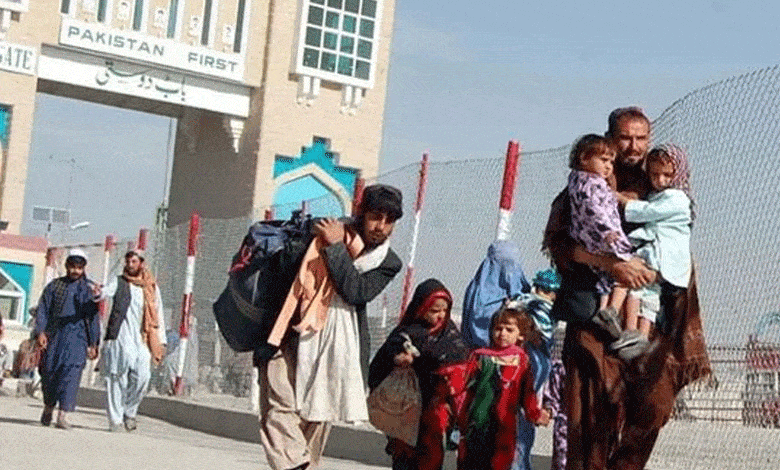Pakistan’s Controversial Plan to Relocate Afghan Refugees: What’s Next for the 1.3 million?
The Pakistan government has unveiled a detailed plan to relocate registered Afghan refugees from Islamabad and Rawalpindi and gradually repatriate them to Afghanistan.

The Pakistan government has unveiled a detailed plan to relocate registered Afghan refugees from Islamabad and Rawalpindi and gradually repatriate them to Afghanistan. The decision was finalized after a series of meetings led by Prime Minister Shehbaz Sharif and attended by top officials, including Chief of Army Staff Gen Syed Asim Munir.
The plan, which aims to address the growing presence of Afghan refugees in these twin cities, is set to begin in phases. Phase I will see Afghan Nationals with Afghan Citizens Cards (ACC) immediately moved out of Islamabad and Rawalpindi. These refugees, along with undocumented Afghan nationals, will be repatriated to Afghanistan.
Table of Contents
Key Details of the Relocation Plan
- Phase I: Afghan nationals holding Afghan Citizens Cards (ACC), issued by Pakistan’s National Database and Registration Authority (NADRA), will be the first to be relocated. The ACC grants temporary legal status to Afghan nationals in Pakistan, and its validity is determined by the federal government.
- Phase II: Afghan refugees holding Proof of Registration Cards (PoR), which allow them to legally stay in Pakistan, will be moved out of Islamabad and Rawalpindi. However, they will not be deported immediately. They are permitted to stay in the country until June 2024.
- Resettlement to Third Countries: Afghan refugees who are awaiting resettlement in third countries will also be relocated from Islamabad and Rawalpindi by March 31, 2024. The Ministry of Foreign Affairs will work with global embassies and organizations to expedite the resettlement process.
Challenges for Afghan Refugees Awaiting Resettlement
While the relocation process has been outlined, it is expected to create logistical challenges for Afghan refugees, particularly those awaiting resettlement in third countries. Many of them rely on Islamabad for access to foreign missions and international humanitarian organizations. Additionally, some Afghan nationals are enrolled in language courses and other programs in the capital.
Deportation and Human Rights Concerns
Pakistan’s government began a nationwide crackdown in 2023 to deport Afghan nationals living illegally in the country. Since September 2023, the International Organization for Migration (IOM) reports that approximately 805,991 Afghan nationals have returned to Afghanistan. However, human rights groups and civil society organizations have criticized the forced repatriation, with some filing petitions in the Supreme Court. These groups are concerned about the legal protection of refugees during the relocation and deportation process.
Also Read: Two Israeli Soldiers Killed in West Bank Shooting Attack: Israeli Military

The federal government has assured the Supreme Court that all registered Afghan refugees, including those holding PoRs and ACC, will be given full legal protection and will not face arrest or deportation without proper procedures. Despite these assurances, reports suggest that hundreds of Afghan nationals were detained in Islamabad in late December 2023.
